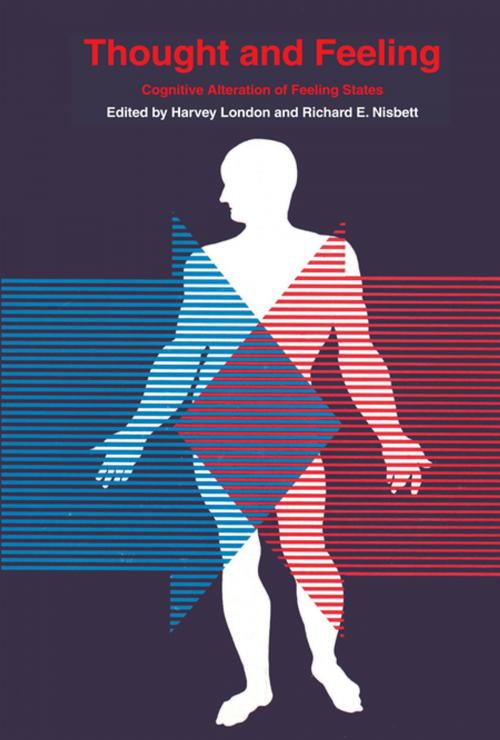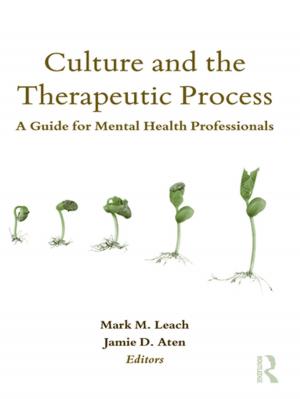Thought and Feeling
Cognitive Alteration of Feeling States
Nonfiction, Health & Well Being, Psychology, Cognitive Psychology| Author: | ISBN: | 9781351471930 | |
| Publisher: | Taylor and Francis | Publication: | July 5, 2017 |
| Imprint: | Routledge | Language: | English |
| Author: | |
| ISBN: | 9781351471930 |
| Publisher: | Taylor and Francis |
| Publication: | July 5, 2017 |
| Imprint: | Routledge |
| Language: | English |
Recently there has been growing awareness and acceptance of the proposition that people do not exist in a world of physically defined forces and events, but in a world defined by their own perceptions, cognitions, conclusions, and imaginations. We respond and react not to some objectively defined set of stimuli, but to our own apperceptions of stimuli that we define subjectively. The original essays in this volume center on one aspect of this process of attribution: The extent to which the perception of events and causes results in the determination, modification, or alteration of emotions, feelings, and affective states.This book is divided into five sections, each of which elucidates and extends these theoretical conceptions. Part 1 provides a historical background and analytical framework for the rest of the book. Part 2 presents chapters dealing with the sorts of internal cues which may give rise to a feeling state. Part 3 presents a chapter discussing the evaluative needs aroused by the internal cues. Part 4 is concerned with the process of explanation triggered by the evaluative needs. Part 5 deals with various external cues and how they are used to label the internal feeling state. There is a concluding discussion of the cognitive alteration of feeling states.The authors deal with aggression, boredom, obesity, the control of pain, and delusional systems. This volume is of continuing importance to clinical and experimental psychologists as well as social psychologists. Each of the authors takes the theoretical concept of cognition and relates it to research in biofeedback, physiology, social psychology, altered states of consciousness, etc. Thus, the book bridges the gap between cognitive theory and the use of that theory in applied research.
Recently there has been growing awareness and acceptance of the proposition that people do not exist in a world of physically defined forces and events, but in a world defined by their own perceptions, cognitions, conclusions, and imaginations. We respond and react not to some objectively defined set of stimuli, but to our own apperceptions of stimuli that we define subjectively. The original essays in this volume center on one aspect of this process of attribution: The extent to which the perception of events and causes results in the determination, modification, or alteration of emotions, feelings, and affective states.This book is divided into five sections, each of which elucidates and extends these theoretical conceptions. Part 1 provides a historical background and analytical framework for the rest of the book. Part 2 presents chapters dealing with the sorts of internal cues which may give rise to a feeling state. Part 3 presents a chapter discussing the evaluative needs aroused by the internal cues. Part 4 is concerned with the process of explanation triggered by the evaluative needs. Part 5 deals with various external cues and how they are used to label the internal feeling state. There is a concluding discussion of the cognitive alteration of feeling states.The authors deal with aggression, boredom, obesity, the control of pain, and delusional systems. This volume is of continuing importance to clinical and experimental psychologists as well as social psychologists. Each of the authors takes the theoretical concept of cognition and relates it to research in biofeedback, physiology, social psychology, altered states of consciousness, etc. Thus, the book bridges the gap between cognitive theory and the use of that theory in applied research.















